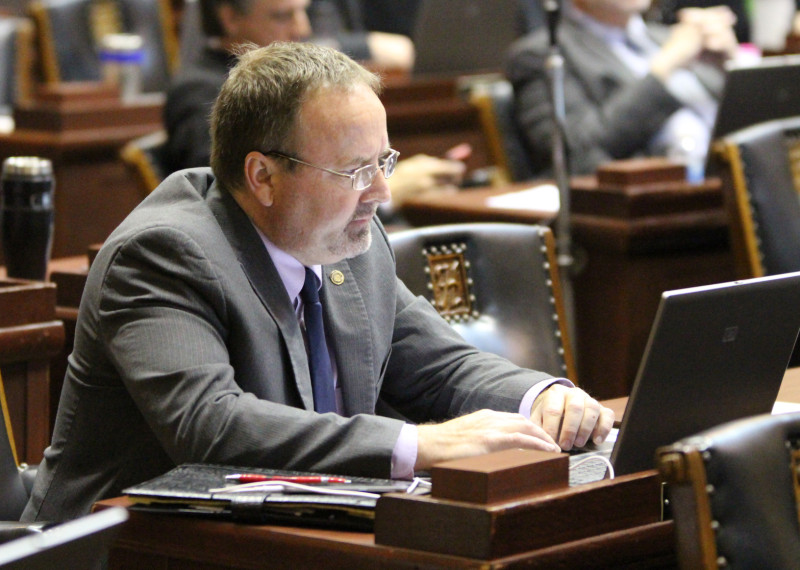JEFFERSON CITY, Mo. – Rep. Rocky Miller and the House Committee on Utilities are one of the few committees who have not met yet, but it’s for a good reason. Miller says that they’re looking to the Senate in an attempt to be more productive with their time.
“We really want to follow their lead,” Miller said. “Instead of sending them a lot of stuff that really nothing happens with, we’re going to wait and have them send us some stuff this year.”
But the committee is preparing for their first hearing, scheduled for next week. On the list of bills on the docket is legislation requiring a review of the statewide energy plan, laws on emergency communications, and clean line energy.
As chairman of the committee, Miller says he wants to find ways to give Missourians a high-quality service with a fair and reasonable price.
One way he intends to do this is with a piece of legislation that he is sponsoring, HB 628. Similar to Sen. Ed Emery’s SB 190, it seeks to establish the “Missouri Economic Development and Infrastructure Act.” Under this bill, the ratemaking policies would be adjusted to allow utilities to recover costs for implementing upgrades for grid modernization. Supporters of the bill say it could promote economic development in Missouri, creating jobs and drawing in new businesses.
“More load means lower prices for customers, and it reduces regulatory lag,” Miller said. “The other thing that is neat is the ability to invest in our infrastructure. That’s the part where everyone goes ‘Oh great. There’s where you’re going to let them increase our rates.’ The opposite is actually true, but it’s hard to get your head around it.”
Miller compares the state’s utility infrastructure to that of an old, trusted pickup truck. After years of service, repairs have to continually be made to keep it running. The question that always has to be answered is whether to keep fixing it or eventually upgrade to a newer model. And that’s what Miller says this bill is about.
Miller says he was involved with a new project in the Rolla area over the summer, and they went through the process of looking at a place in Illinois and two places in Missouri.
“It turns out, the energy costs for this manufacturing place was 30 percent less in Illinois. That’s because they adopted these kind of regulations years ago,” Miller said. “We’ve always thought we’ve got low energy prices in Missouri. That’s not the case anymore. The people we’re competing against now have lower energy costs than we do. Missouri is missing out, and we really have to do something about it.”
Miller says that the concern with any upgrades is always the cost, and says that most Missourians, himself included, cannot afford for the utility companies to do all of upgrades at one time. That’s why the bill looks to implement everything in a process.
“The more load we get, the more it’s spread around, the better off everyone is,” he said. “It’s important that we all give a little bit in the beginning. It’s important that the shareholders and the customers share equally in the cost and benefits that are associated with these rates and this policy.”
And that’s what Miller says is the difference between the two bills – he wants his bill to share the burden of the costs equally among the utilities and their customers, since both would theoretically benefit from the upgrades in the long run.
Another difference is that the bill also includes a long sunset clause, reaching a decade in the future, which Miller says is to give the bill and improvements a chance to work.
“It’s probably not going to look real ‘sunny’ for the first few years, but it will get us to a point where we can catch up to our neighbors and become competitive again,” he said.
The bill sunsets on Dec. 31, 2027.
In the end, Miller says the overall goal is to make Missouri more competitive with other states, as well as lessening the customers’ rate increases.
Benjamin Peters was a reporter for The Missouri Times and Missouri Times Magazine and also produced the #MoLeg Podcast. He joined The Missouri Times in 2016 after working as a sports editor and TV news producer in mid-Missouri. Benjamin is a graduate of Missouri State University in Springfield.











